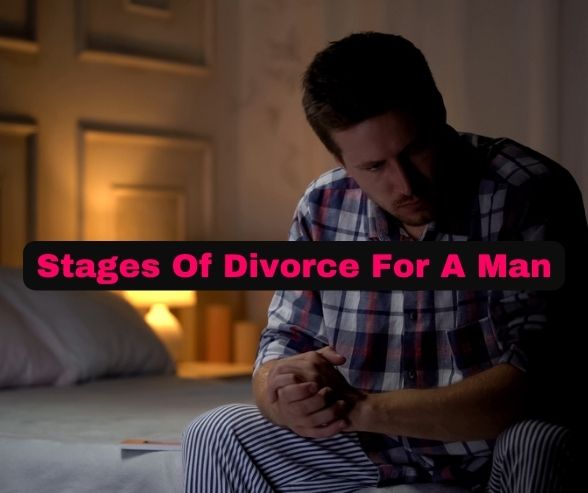
Stages Of Divorce For A Man
Divorce is often a complicated process for both parties involved but there are some unique challenges that the men face after a divorce. Men are often less likely to initiate divorce according to studies, which means they are often left in shock when their spouse files for divorce. Since men don’t often expect a divorce, they are often caught unprepared when they are served with divorce papers.
 All this uncertainty caused by an unexpected divorce can leave men clueless about what steps to take next. Some develop serious health problems that are often difficult to overcome.
All this uncertainty caused by an unexpected divorce can leave men clueless about what steps to take next. Some develop serious health problems that are often difficult to overcome.
How Do Men Handle Divorce
Emotions Of A Man Going Through Divorce
Any man that has to deal with an unexpected divorce can see counselors and therapists to help them get through the painful transition. But men with mental health issues often also have to overcome the stigma around men’s mental health. In many cultures, a man is expected to bottle up their emotions instead of dealing with them.
For this reason, some men get into harmful habits that may make the divorce process even harder to bear. Divorce is a very stressful process because it marks the end of a relationship and a familiar routine.
Stages Of Grief In A Divorce
Healing After Divorce For A Man
The feeling of loss for a divorce is almost similar to the feeling you get when a loved one dies. So, the stages of grief from death and divorce are similar to some extent.
- Denial: After the initial shock, you may remain in disbelief about the divorce not knowing what to think or do about it. The denial that follows could be an attempt to self-soothe or to avoid the pain.
- Guilt and pain: One way or another you will have to deal with the pain because the shock eventually wears off. You need to let yourself feel the pain without indulging in drugs or alcohol. The signs of guilt include asking yourself many “what if” questions.
- Anger: You may start lashing out at people who have nothing to do with the cause of the divorce or the disintegration of your marriage.
- Bargaining: This involves holding on to hope in an attempt to postpone feelings of confusion or hurt. It may involve hoping that your partner will come back to you if you change your behavior or through help from God.
- Depression: Feeling depressed is often accompanied by a lot of reflection and a feeling of loneliness. It’s often made worse when all your loved ones expect you to move on and you have not seen your children for some time. You need to take steps to move on such as caring for your mental health and focusing on personal growth.
- Acceptance and hope: At first you may have good and bad days, then you will start setting goals and working towards achieving them. Then eventually you will find a way to accept your loss and pain. You won’t achieve happiness immediately but you will continue to heal every day.
You don’t have to go through these stages on your own.